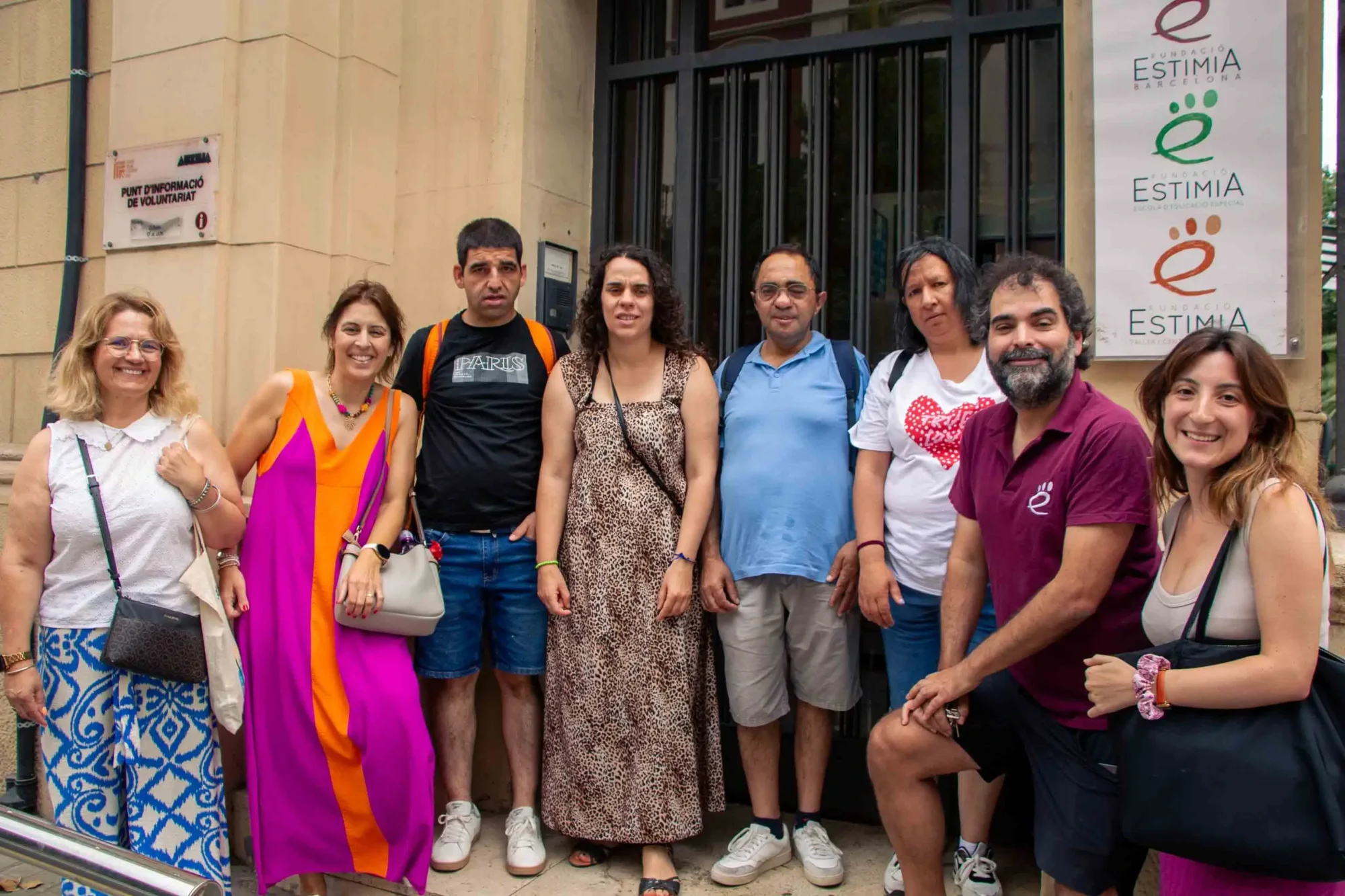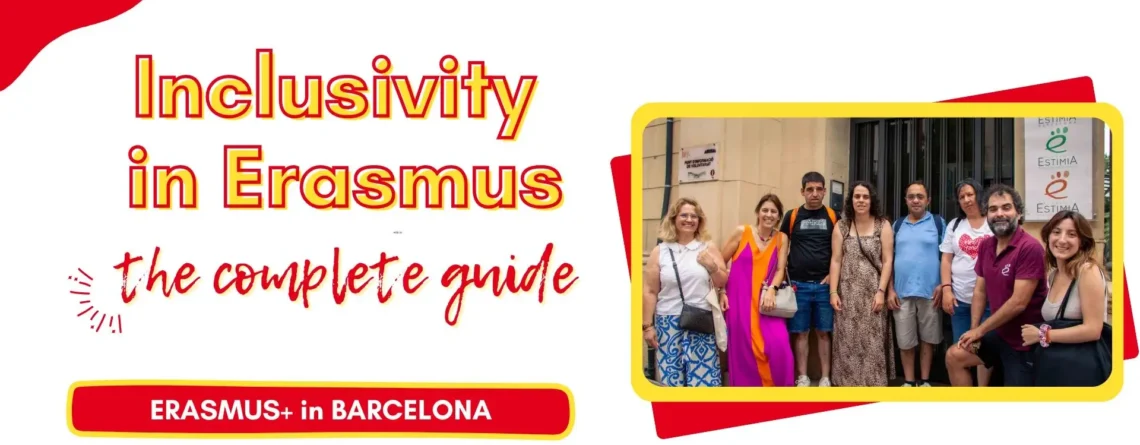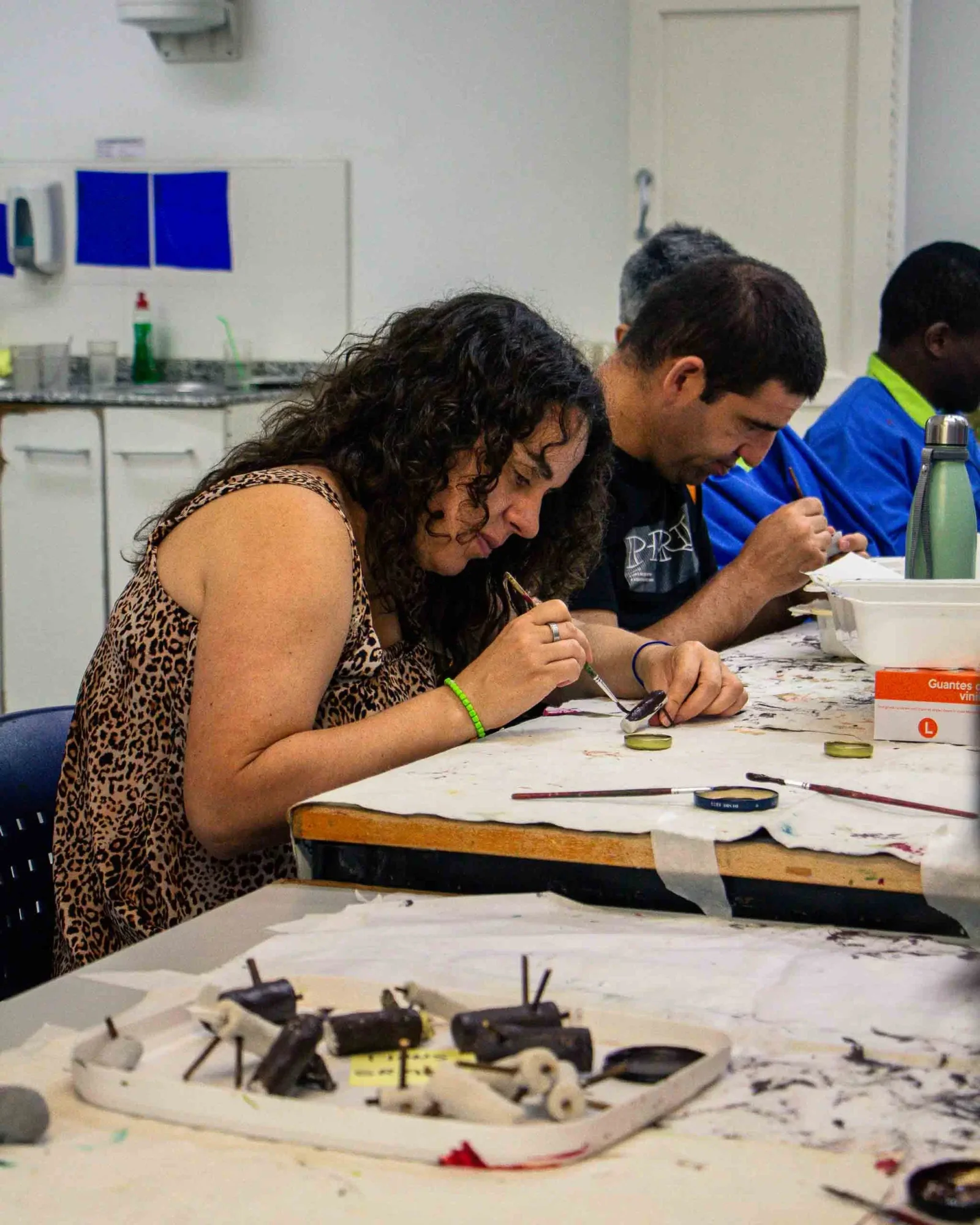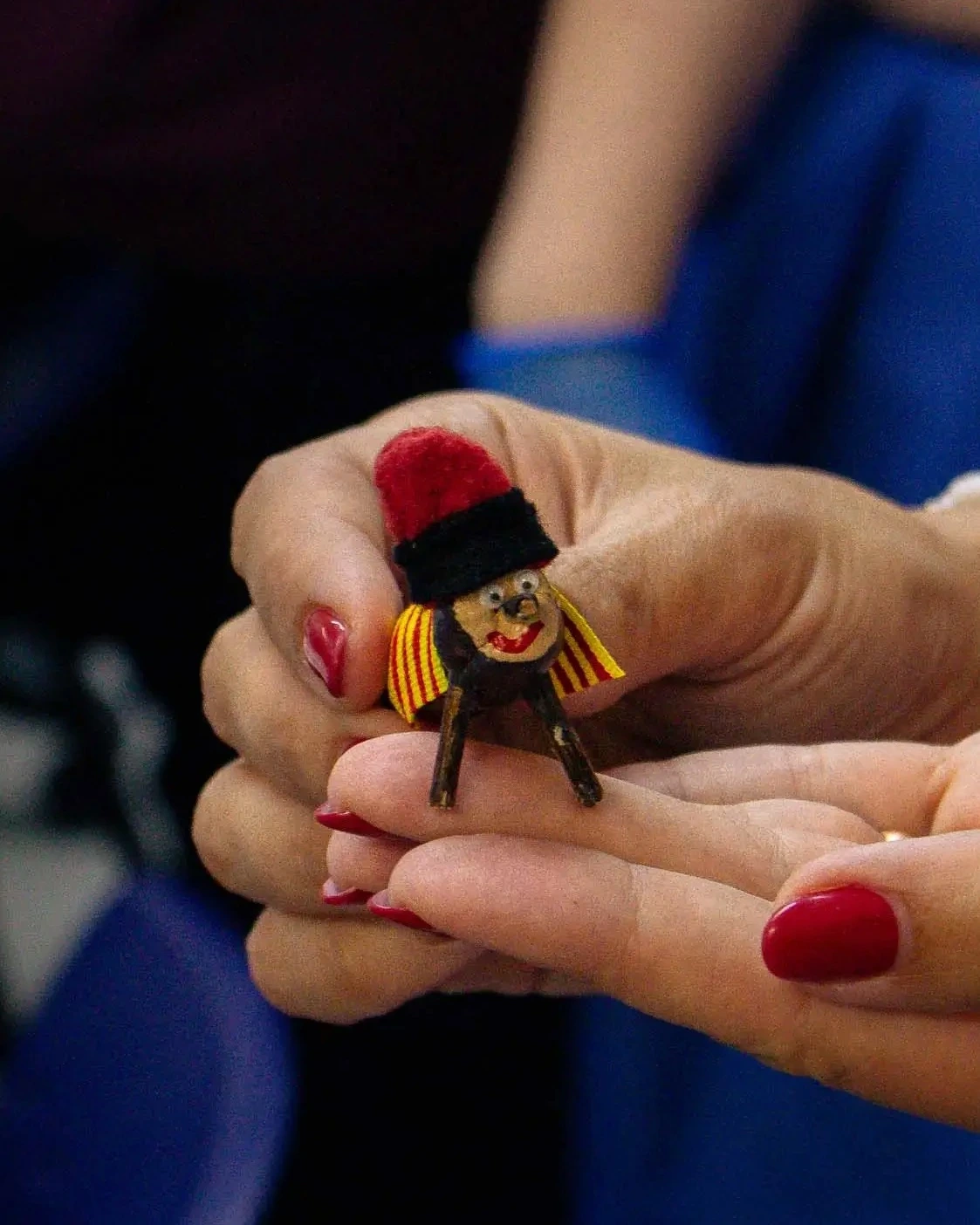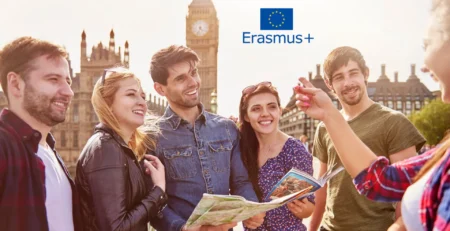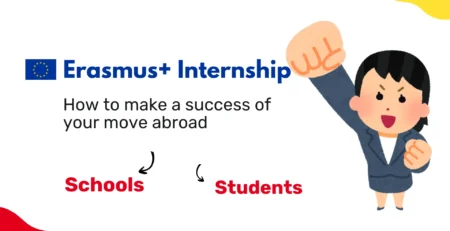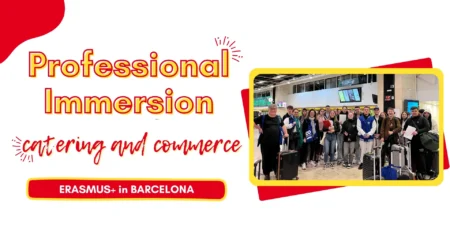Erasmus+ and Disability: How to Plan an Inclusive International Mobility with Support & Grants
Think Erasmus is just for twenty-somethings? Think again. It’s also an amazing opportunity for adults with disabilities, some of whom have no qualifications and have never traveled by plane, metro, or train.
Erasmus and disability? Yes, it’s possible!
Four adult learners from the Santa Casa da Misericórdia de Alvorge (Portugal), currently studying at the Escola Tecnológica e Profissional de Sicó, just proved it. Their extraordinary experience beautifully illustrates Erasmus+’s commitment to making international mobility accessible for learners with disabilities.
Want to offer a similar opportunity to your students, learners, or even yourself?
This guide to inclusive mobility has everything you need, from available Erasmus+ financial support for participants with disabilities to practical planning tips. You’ll also find useful resources and details on how to get personalized support to organize your inclusive mobility project.
Why Erasmus+ Is Committed to Inclusive Mobility for Participants with Disabilities
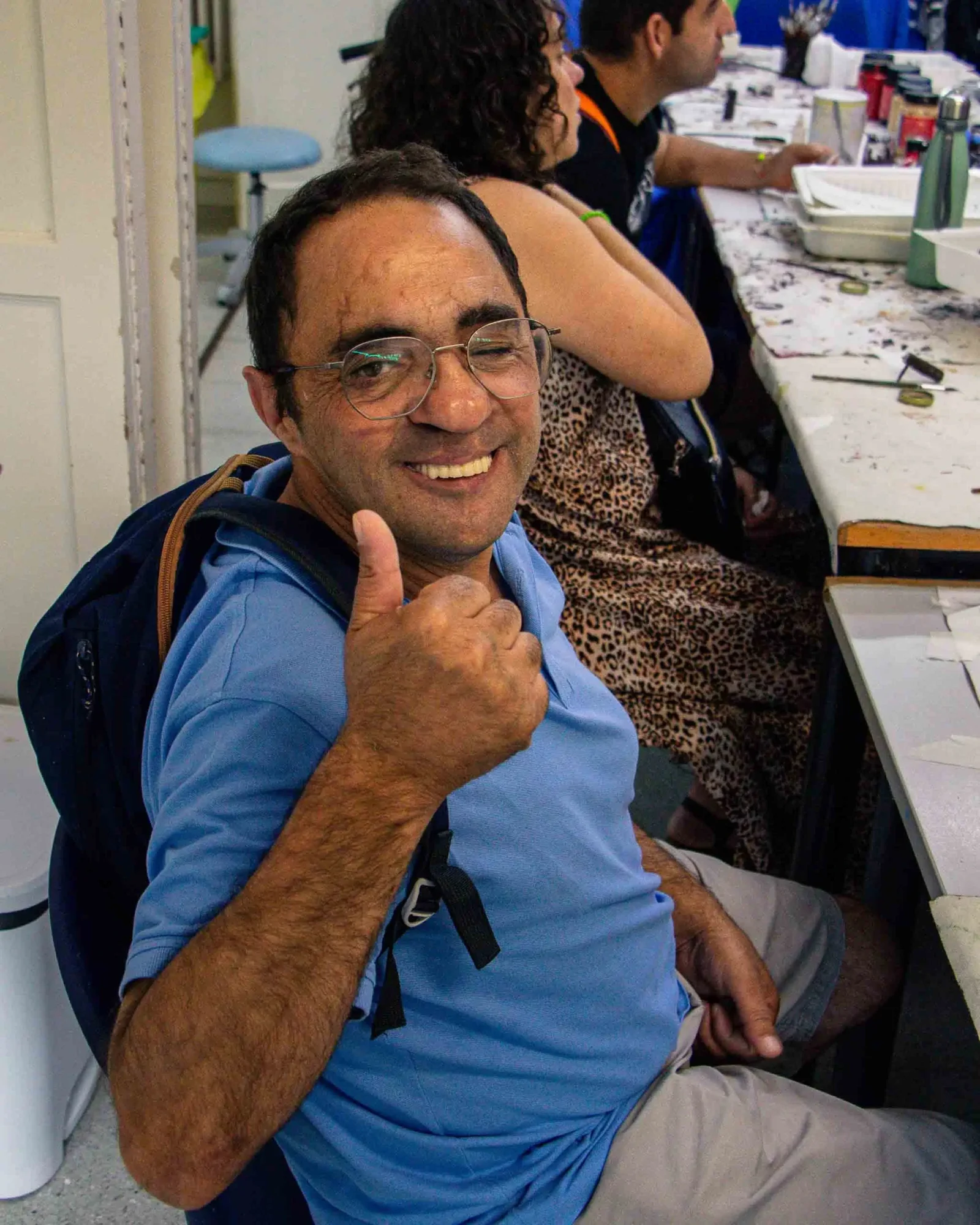
Inclusive mobility is a core mission of the Erasmus+ program. During the 2014–2020 Erasmus+ program, 2.6 % of participants had a health condition. The goal? To see this number grow.
In October 2021, the European Commission reaffirmed its commitment to inclusion and diversity in Erasmus+. The current 2021–2027 program proudly promotes equal opportunities for all—one of Erasmus+’s founding values.
So, what counts as a disability under Erasmus+?
According to the Erasmus+ official website, this includes participants with:
- “physical, mental, intellectual or sensory impairments” ;
- “health issues including severe illnesses, chronic diseases, or any other physical or mental health-related situation”.
The above-mentioned disabilities or health issues prevent the person from participating in the Erasmus program.
To make inclusive mobility a reality, Erasmus+ offers dedicated financial support for participants with disabilities.
And the impact? Undeniable. Inclusive mobility builds self-confidence, adaptability, and independence in participants.
Overcoming the Main Barriers to Traveling with a Disability
When traveling, as in everyday life, people with disabilities often face many barriers. Unfortunately, these challenges can discourage some from pursuing a trip or an Erasmus+ mobility. But with proper planning, it’s possible to overcome them and enjoy an enriching experience abroad.
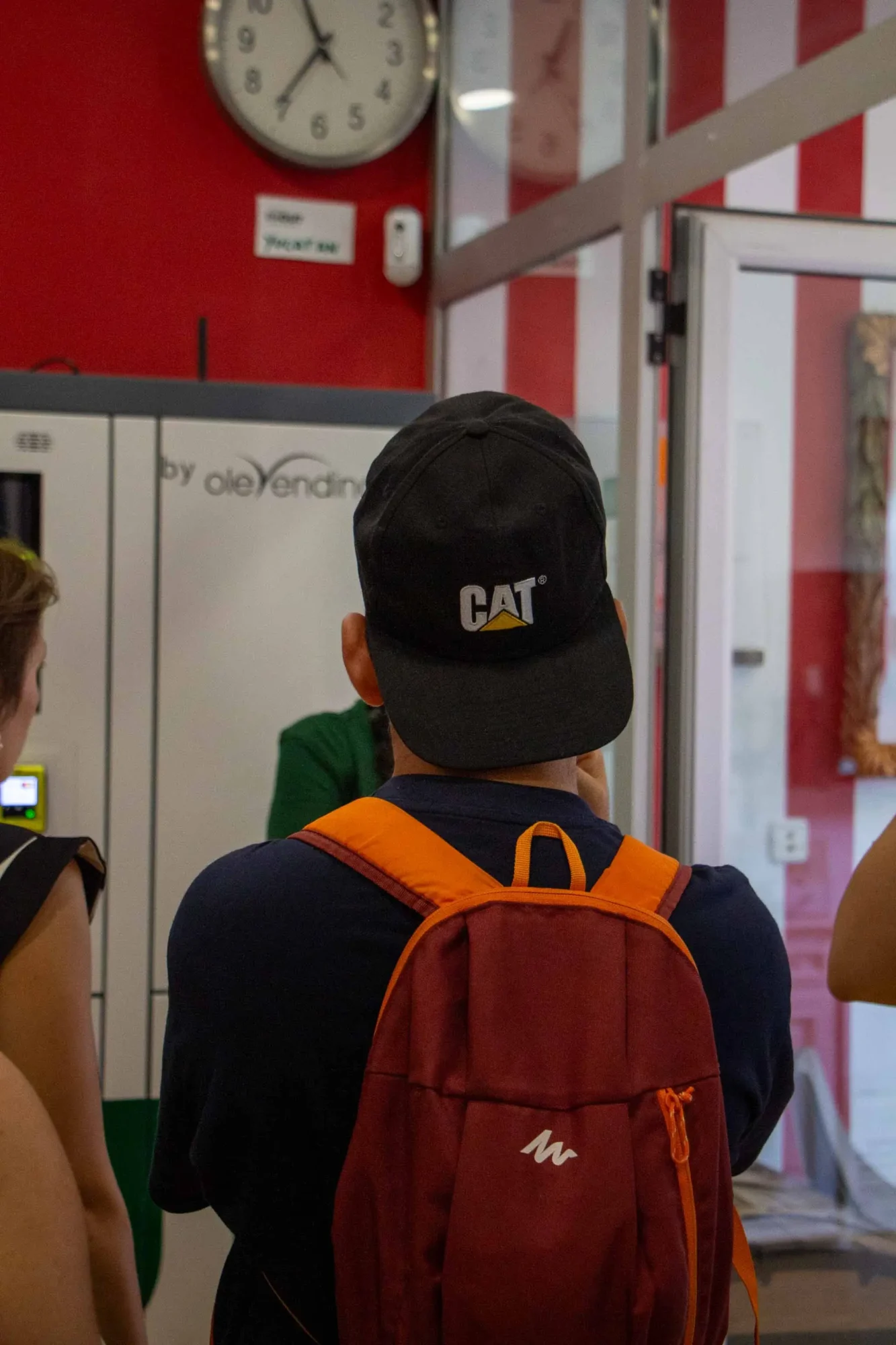
- Accessibility
Transportation—especially air travel—is not always adapted for people with reduced mobility. Finding accessible accommodation can be tricky, and not all public spaces or host organizations are fully inclusive.
The solution? Anticipation. Plan your Erasmus+ trip well in advance and leave nothing to chance. Some travelers with disabilities are eligible for special assistance and priority boarding on flights. Be sure to verify that transport and accommodations meet your accessibility needs. When it comes to Erasmus+ mobility, a preparatory visit allows the mobility coordinator to assess the accessibility of the host sites beforehand.
- Lack of information and services
Travelers with disabilities sometimes struggle to find reliable and detailed information about accessibility in host institutions.
The solution? Ask precise questions (door width, step-free access, etc.) when contacting airlines, hotels, landlords, or tourist sites. You can also request photos and look for blog posts from travelers or Erasmus participants in similar situations. If you’re considering an Erasmus+ mobility with a disability, the preparatory visit organized by Espamob helps remove doubts before departure.
- Additional costs
Traveling with a disability often comes with extra expenses. That’s why Erasmus+ offers specific financial support for students with disabilities.
- Pre-departure anxiety
Fear of the unknown, logistical worries, or even self-doubt—many concerns can arise before departure. A thorough preparation can go a long way in easing these fears. The presence of support staff, when needed, is also a great reassurance.
Erasmus+ Financial Support for Students with Disabilities
As we’ve seen, financial concerns can hinder international mobility for students with disabilities. To support inclusive mobility, Erasmus+ offers several types of financial aid.
- Standard Erasmus+ grant
The basic Erasmus+ grant is available to all students going abroad for studies or internships. The amount varies depending on the duration, the type of mobility, and the countries of origin and destination. Eligibility is not limited to students receiving need-based national grants — any Erasmus+ participant can apply.
- Erasmus+ inclusion top-up
Students with disabilities are entitled to an additional inclusion top-up grant of €250 per month on top of the standard Erasmus+ grant.
- Additional support grant
Beyond the fixed top-up, Erasmus+ covers all disability-related expenses in full, based on actual costs and supporting documentation. This includes: personal assistance, accessible transportation, suitable accommodation, on-site medical support…
- How to apply?
Applications for both the standard grant and inclusion top-up must be submitted through the International Relations Office of the student’s sending institution.
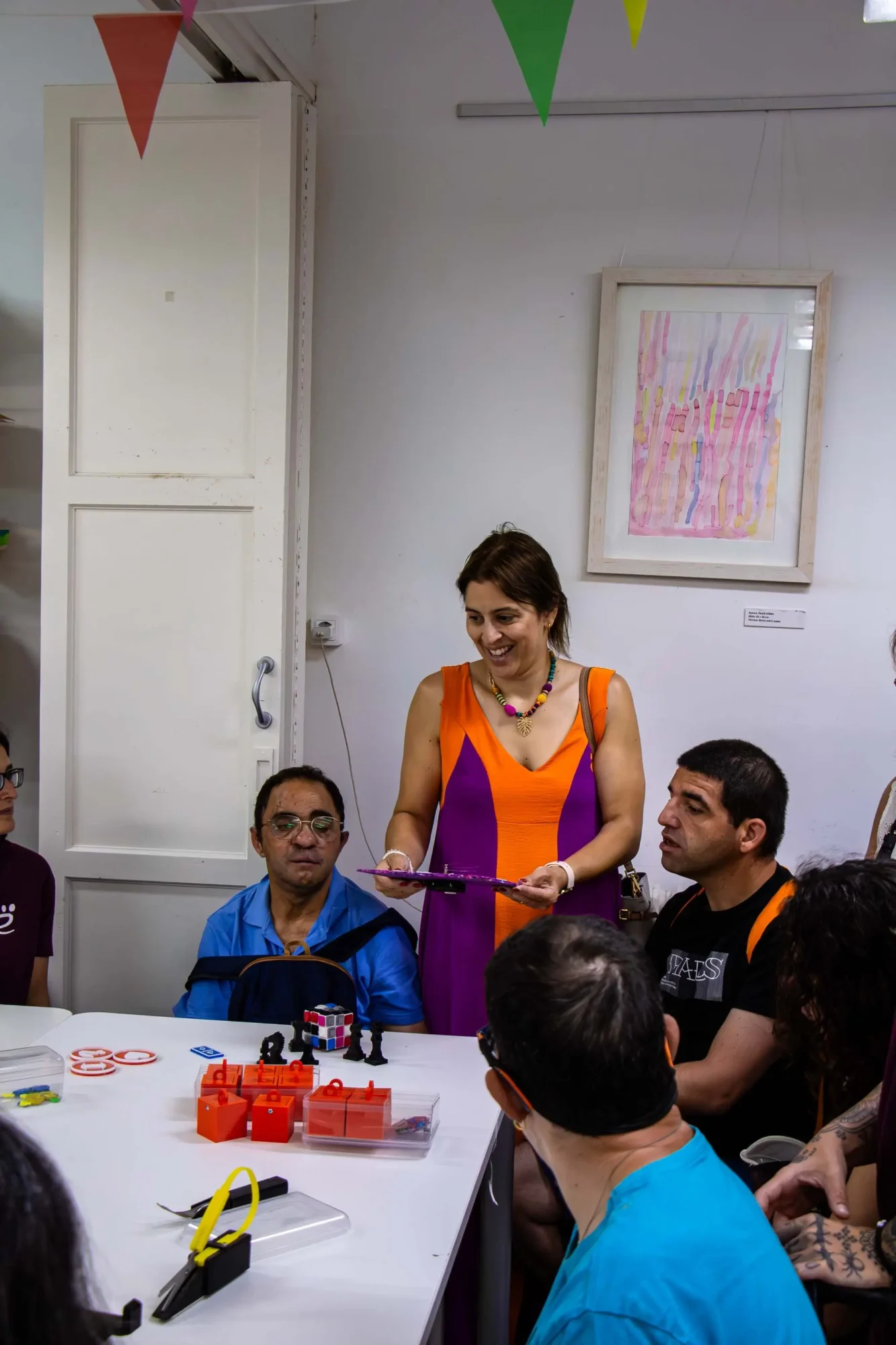
How to Prepare for an Erasmus+ Mobility with a Disability: Step-by-Step Guide
Planning to go on an Erasmus+ study stay or internship with a disability? With the right preparation, your experience abroad can be just as enriching and accessible as anyone else’s. Here’s how to prepare for an Erasmus+ mobility with a disability.
1. Get Informed and Find the Right Support
Start by contacting the International Relations Office and the Disability Support Officer at your home institution.
They’ll guide you through the application process and inform you about:
- Financial aid options, including the inclusion top-up;
- Available accommodations for students with limited mobility or specific needs;
- Application process and key contacts.
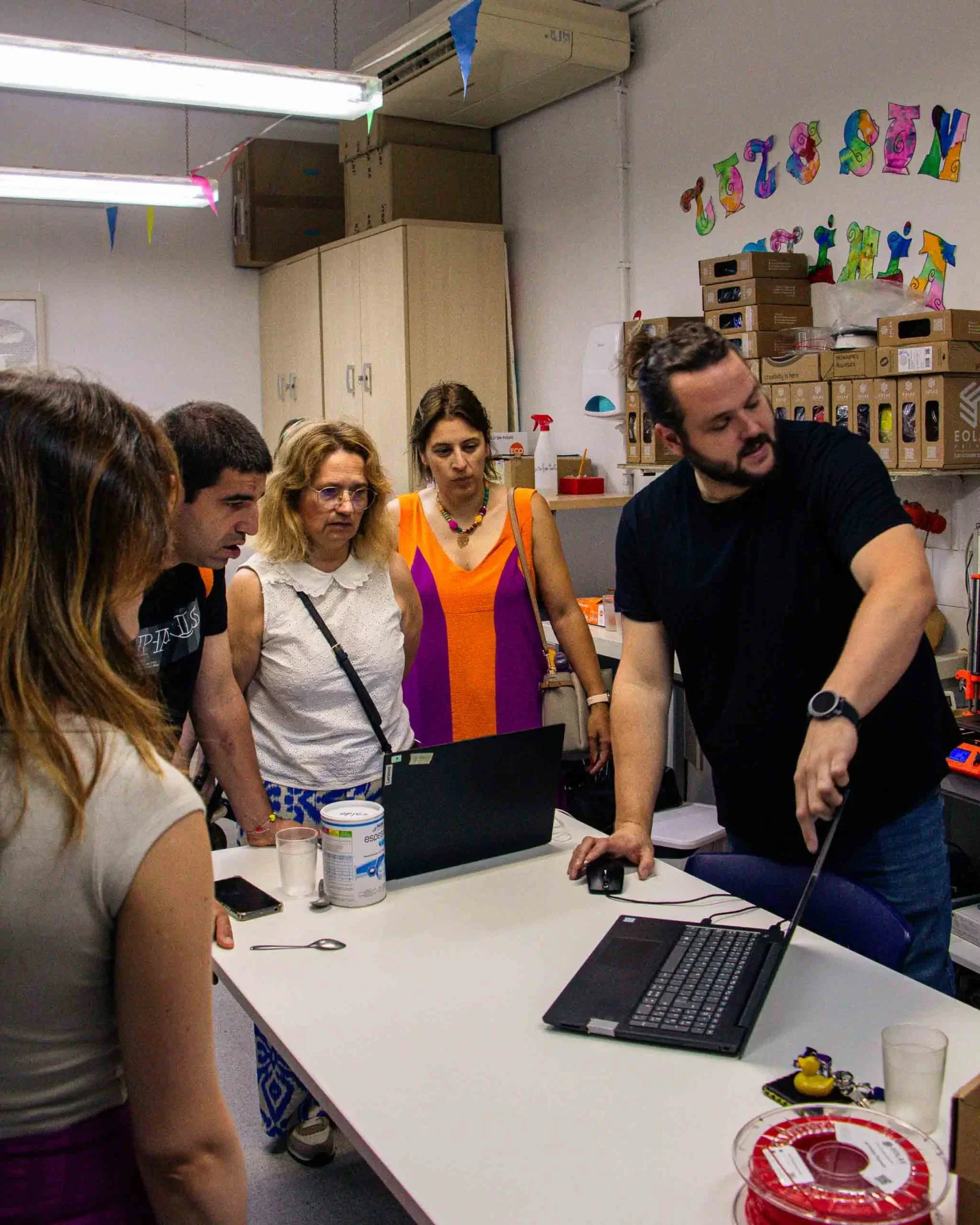
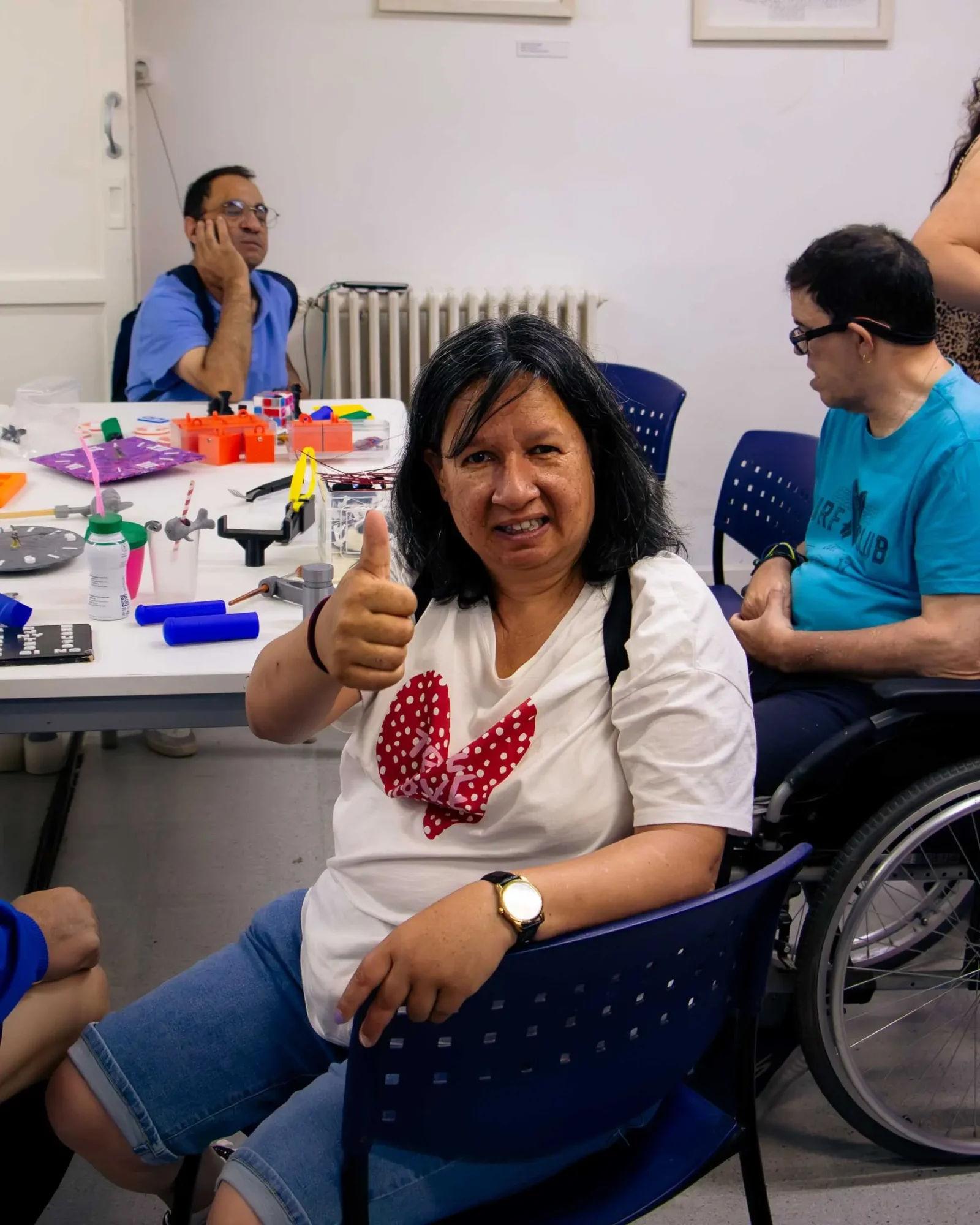
2. Prepare Your Erasmus+ Application
Build a complete and well-documented application, clearly explaining your motivation for going abroad.
To qualify for the Erasmus+ inclusion top-up, you’ll need to provide official documentation such as:
- A disability card or long-term illness certificate,
- A proof of eligibility from national authorities in charge of people with disabilities (e.g., MDPH in France).
3. Plan Your Stay Early
Organizing an Erasmus+ mobility with a disability requires early planning. You’ll need:
- Accessible transportation, both for getting to your host country and for getting around locally;
- Accessible accommodation adapted to your needs;
- A host organization or school that can provide a supportive, inclusive environment.
This process can feel overwhelming — but you don’t have to go it alone.
Need Help? Espamob Supports Inclusive Erasmus+ Projects.
As a specialized Erasmus+ mobility partner, Espamob offers tailored support for participants with disabilities.
👉 We carefully select accessible host companies and accommodations
👉 We handle logistics and daily mobility challenges, offering real-life solutions for travelers with disabilities.
👉 We create custom language and cultural programs suited to your needs.
👉 We also organize preparatory visits, during which teachers or mobility coordinators can explore the internship sites and anticipate any logistical issues.
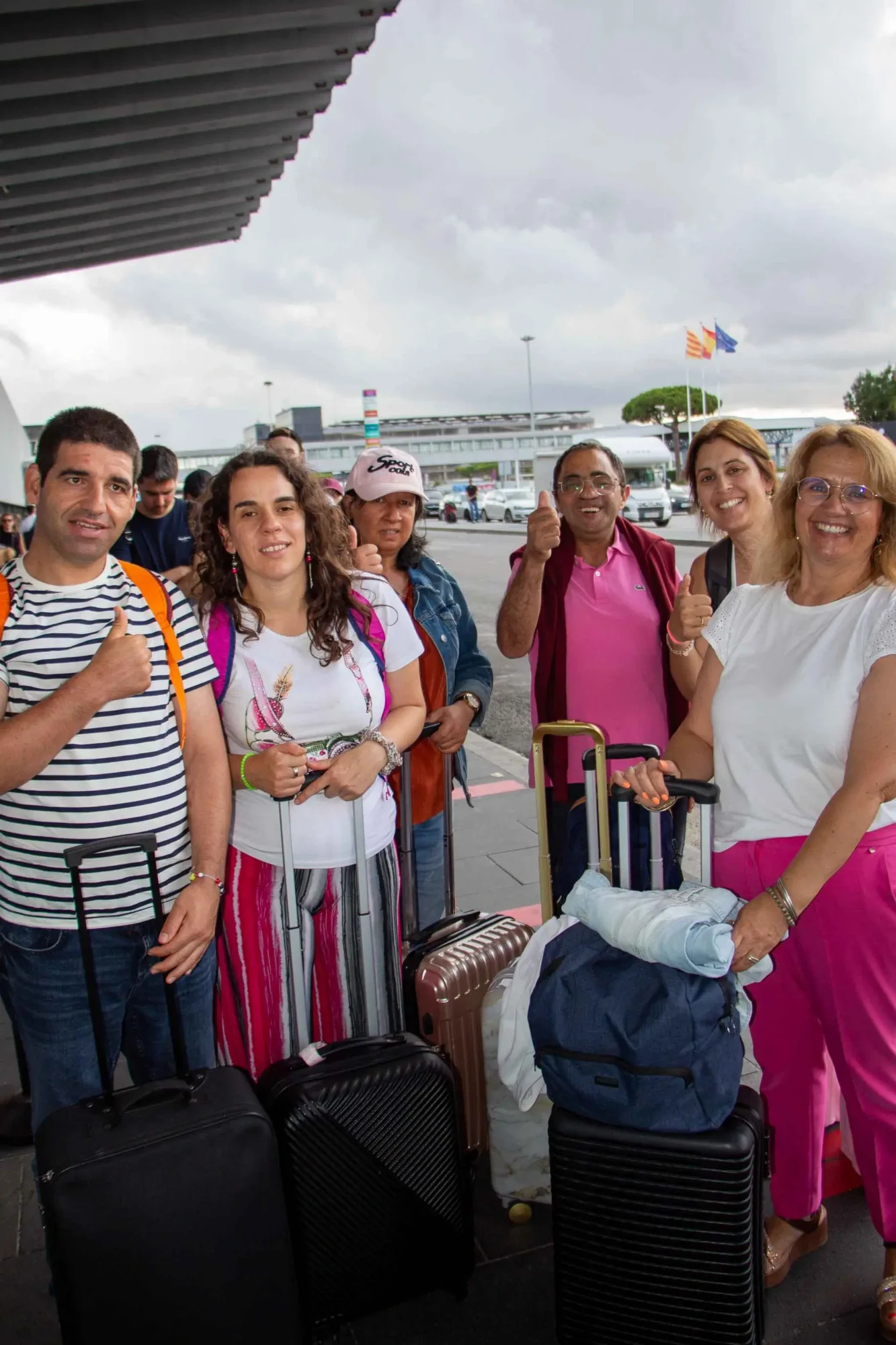
Testimonials: Erasmus+ Mobility for Adults with Disabilities
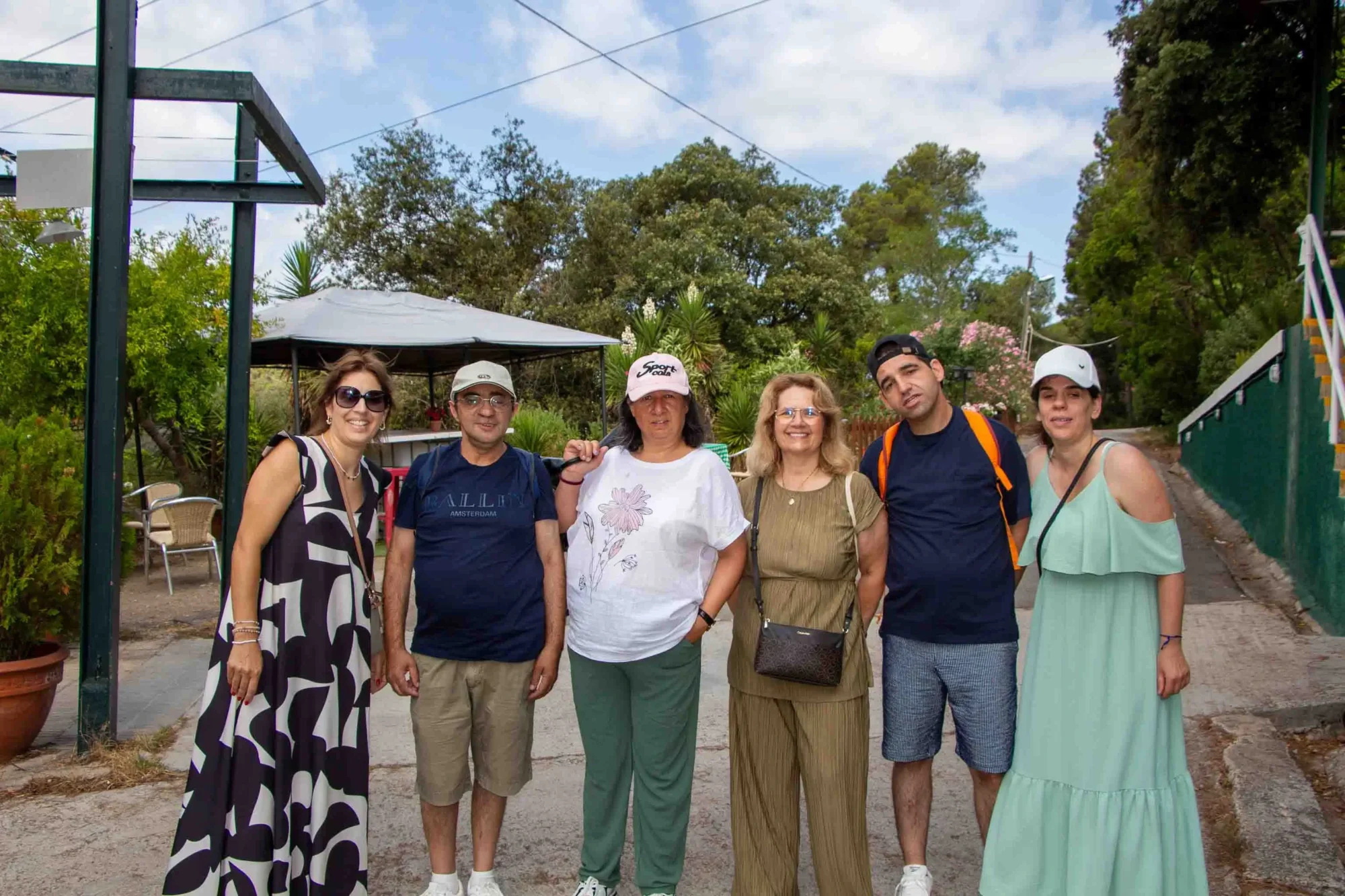
They weren’t sure they wanted to go to Barcelona.
And yet, these four adult learners with disabilities had an unforgettable week abroad.
Coming from the Santa Casa da Misericórdia (SCM) center in Alvorge, Portugal, they are enrolled in classes at the Escola Tecnológica e Profissional de Sicó. These courses are part of an inclusive education program designed to help adults facing illiteracy earn a school certificate, with teachers coming directly to the SCM center to give lessons.
Thanks to the Erasmus+ program, they were offered a unique opportunity to experience international mobility — something that wouldn’t have been possible otherwise due to their specific needs.
At Espamob, we were proud to support SCM Alvorge in coordinating this fully inclusive mobility experience.
For a week in Barcelona, our four learners broke their routine.
First time on a plane, in the metro, abroad… The prospect seemed daunting for adults with disabilities. And yet, accompanied by their two dedicated teachers, they took the plunge.
Their stay included a visit to INOUT Hostel, a hotel in Barcelona where 90% of the staff live with disabilities. They pictured themselves working and thriving there. Their teachers say it gave them the impression that they don’t have a problem because they do what others do.
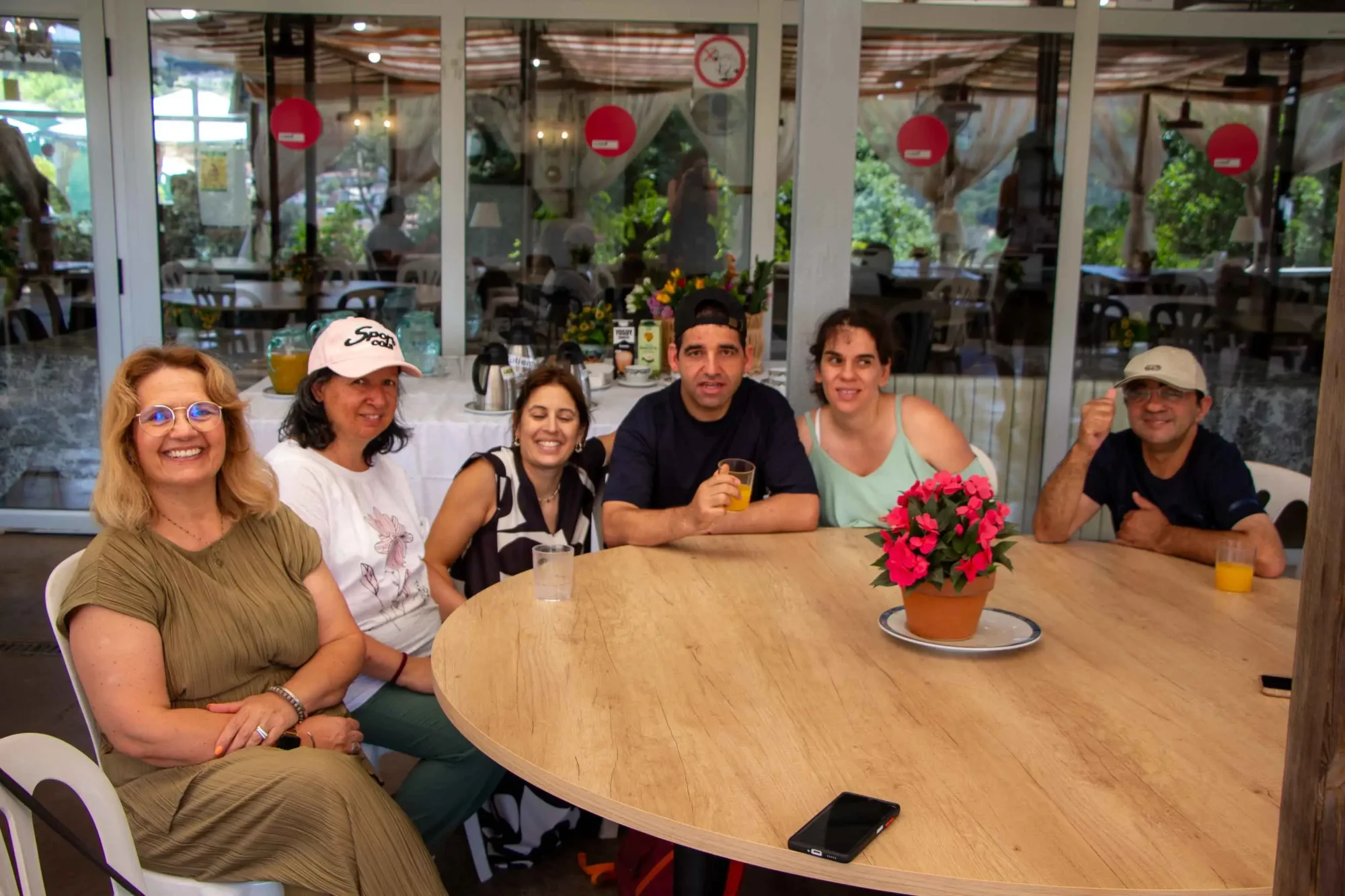
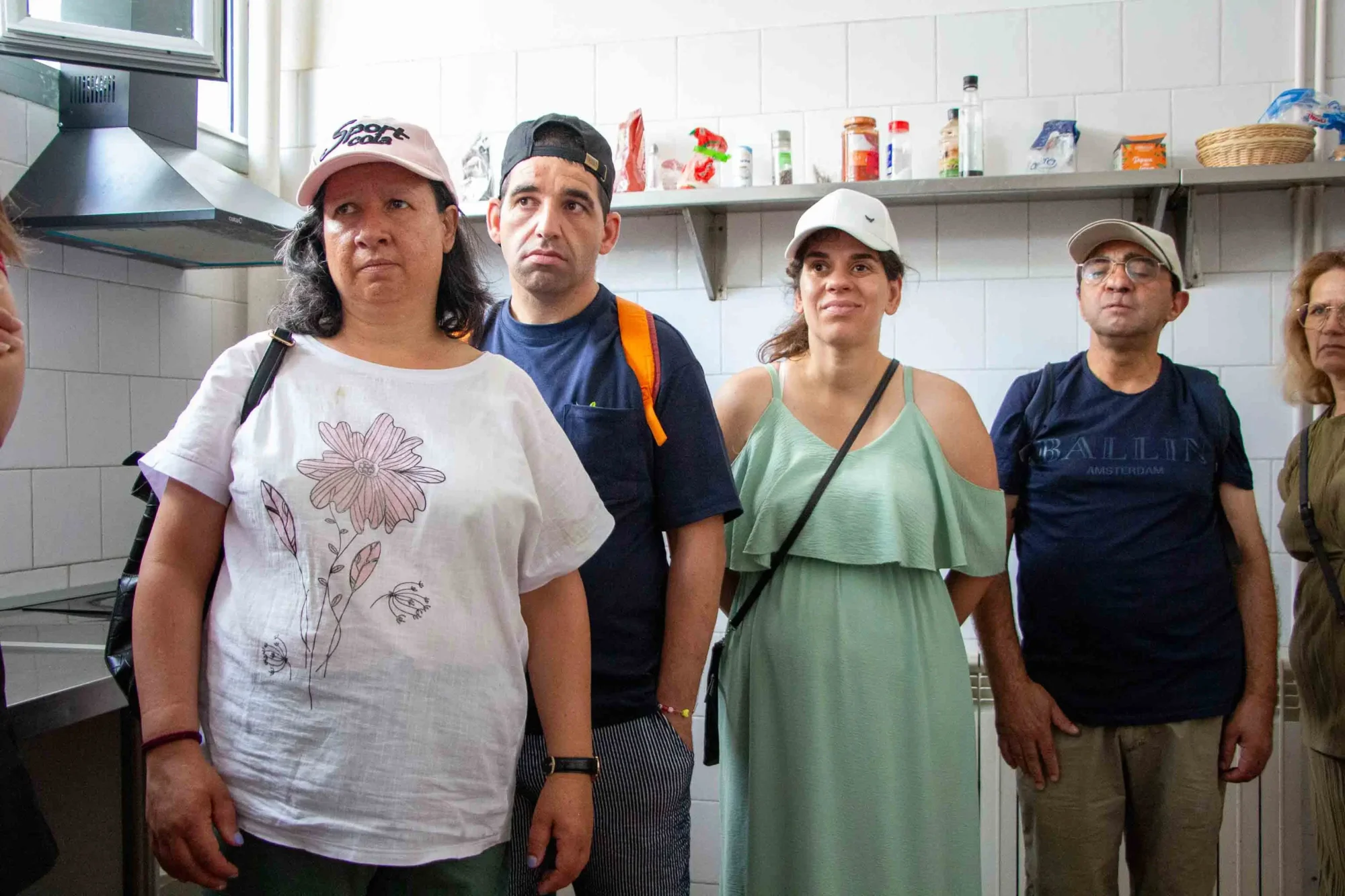
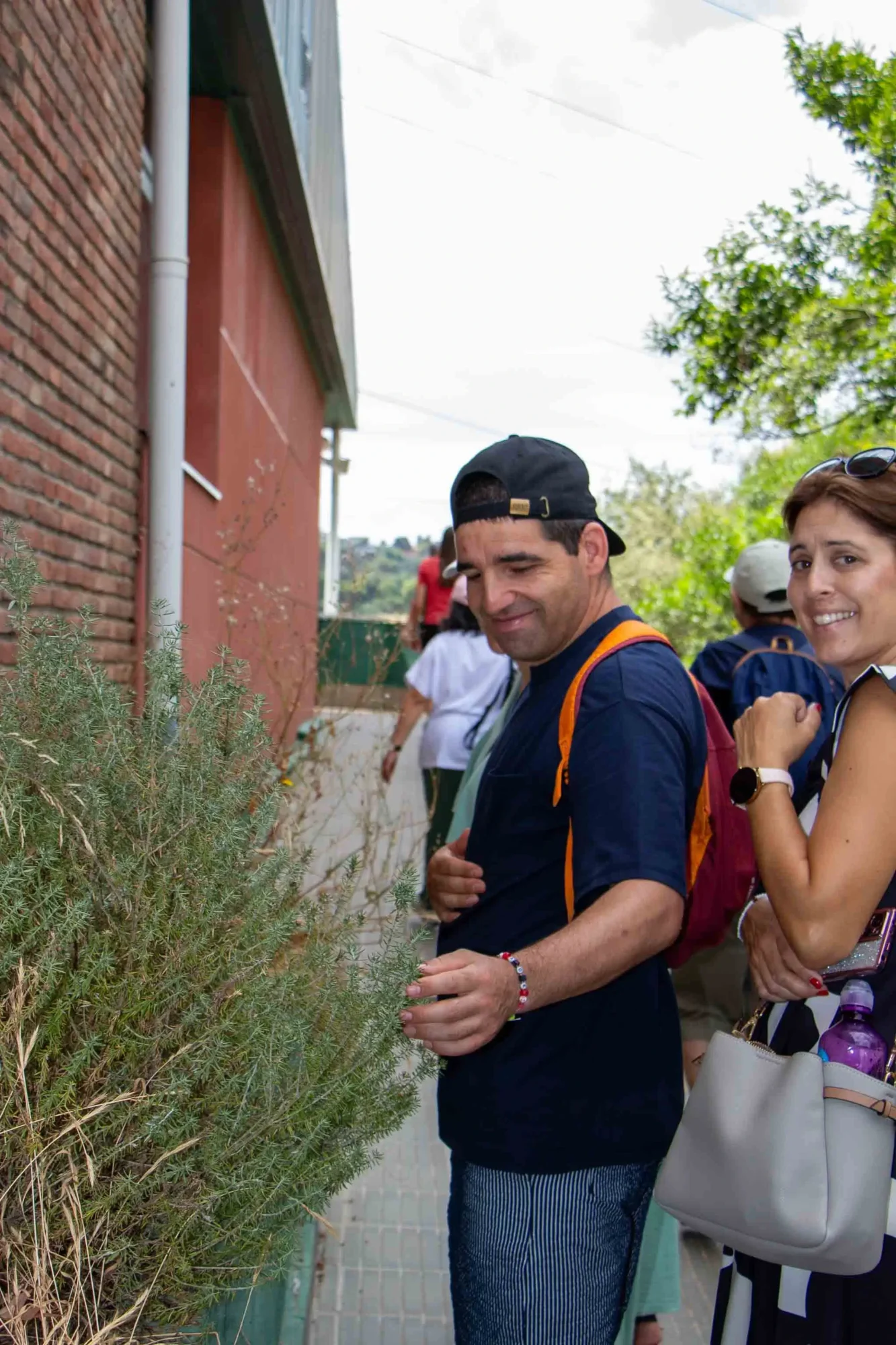
They also visited Fundació Estimia, a local organization similar to their own.
There, they met people just like them and completely different at the same time. They laughed, shared stories, and took part in a creative workshop based on a Catalan Christmas tradition: the “Caga Tió.” Each student made their own festive log figure to take home.
They discovered a new city, a new country, and a new culture with its own food, customs, and traditions.
Alongside their teachers, they explored some of Barcelona’s most iconic landmarks, including Plaça Catalunya, Casa Milà, Passeig de Gràcia, and Las Ramblas.
Despite their initial fears, they were genuinely happy during the experience. This inclusive mobility helped our four adults with disabilities to develop their personal and social skills, their self-confidence, and step outside their comfort zone and adapt to unfamiliar settings.
Watch their full Erasmus+ disability experience:
Erasmus+ and Inclusion: Useful Resources for Students and Accompanying Staff
Here are some valuable resources to help you prepare for an Erasmus+ mobility experience with a disability:
- Inclusive Mobility – A platform developed by Erasmus+ to help people with disabilities and their accompanying persons learn more about the countries and institutions ready to welcome them.
- Country Information – A directory of inclusive education systems by country, provided by the European Agency for Special Needs and Inclusive Education.
- Your institution’s disability advisor – Most universities and vocational schools have a designated advisor or contact person for students with disabilities. Their contact details can usually be found on the institution’s official website or national student portals.
- The “Inclusion A-Z” Guide – Published by SALTO-YOUTH, this guide is packed with practical advice for inclusive mobility projects.
- Your National Erasmus+ Agency – They can help you with application procedures, funding opportunities, and technical support.
- mobility-with-disabilities.org – A useful resource platform focused on international mobility for people with disabilities.
- Espamob – Your European mobility partner providing end-to-end support for your inclusive Erasmus+ mobility project.
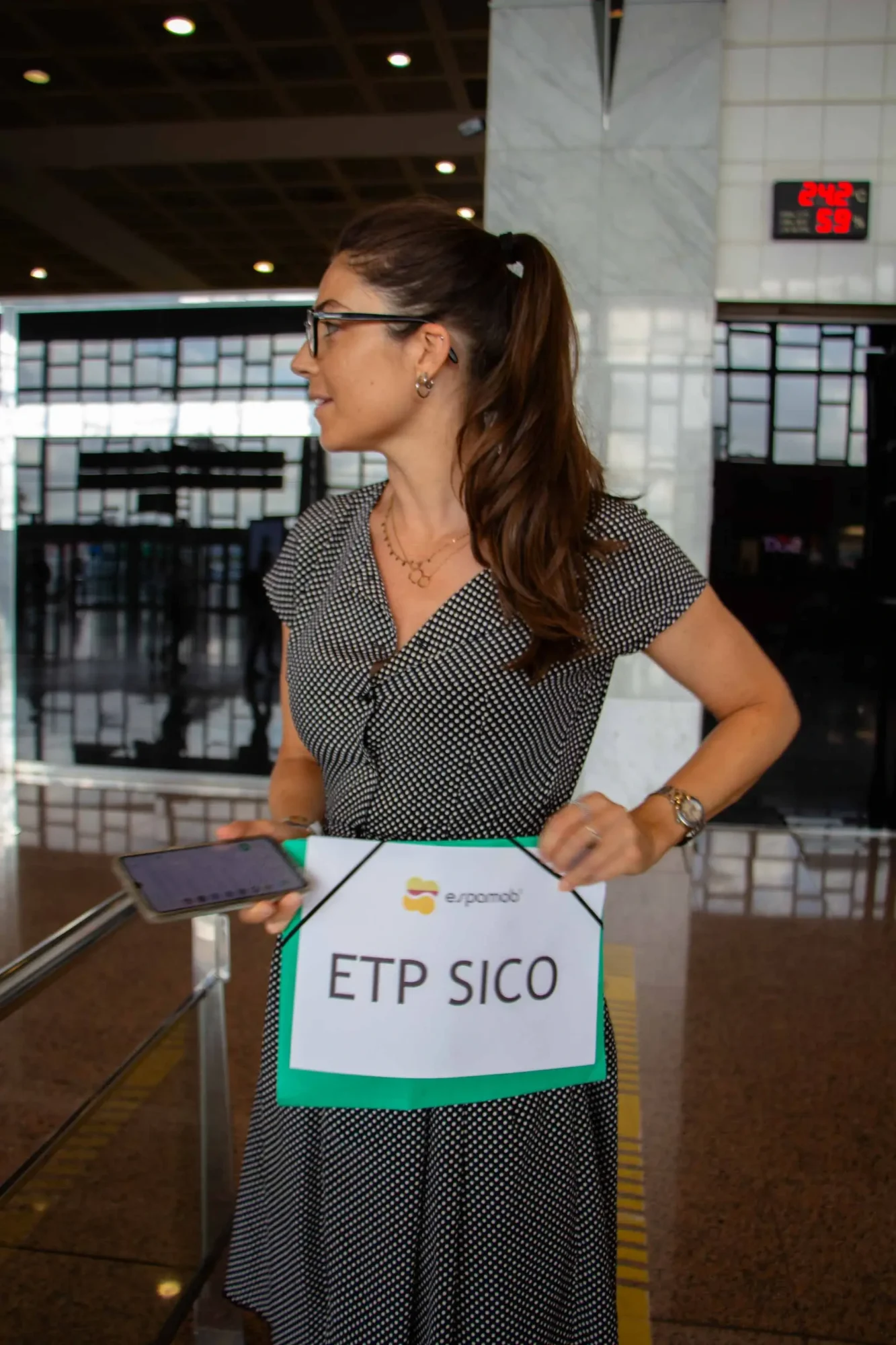
FAQs
Who is eligible for the Erasmus+ program?
Anyone living in a participating country can be eligible for the Erasmus+ program, regardless of age or background. This includes students, apprentices, teachers, trainers, adult learners, and people with fewer opportunities — including those with disabilities.
What kind of support is available for Erasmus+ students with disabilities?
Students with disabilities are eligible for standard Erasmus+ grants, plus an additional inclusion top-up to help cover any disability-related needs. Extra costs linked to the disability — such as accessible transport, personal assistance, or medical support — can also be reimbursed in full.
What is the Erasmus+ inclusion top-up?
The Erasmus+ inclusion top-up is an extra financial allowance provided to Erasmus+ participants with disabilities or special needs. It complements the standard Erasmus+ grant to cover any additional expenses linked to accessibility or disability-related requirements during the mobility period.
How to organize an Erasmus+ mobility with a disability?
Planning ahead is key to organize an Erasmus+ mobility with a disability. Here are the main steps:
– Get informed: Contact the International Relations Office and the Disability Support Officer at your institution.
– Prepare your application: Submit a complete Erasmus+ file, including documentation for the inclusion top-up (such as a disability card or medical certificate).
– Plan your stay.
Organizations like Espamob help institutions every step of the way to ensure an inclusive and successful Erasmus+ experience.
Is Spain accessible for people with disabilities?
Yes, Spain is considered one of the more accessible countries in Europe, especially in major cities like Barcelona. Public transportation, tourist accommodations, and many cultural and educational institutions are equipped for travelers with disabilities.
Useful link: sustainability.spain.info
Erasmus+ and Disability: Yes, It’s Possible for You Too!
If our four Portuguese learners did it, so can you!
Offer your students or adult learners with disabilities a tailor-made Erasmus+ experience.
Espamob supports you from start to finish, with practical solutions for a successful and inclusive mobility program.
